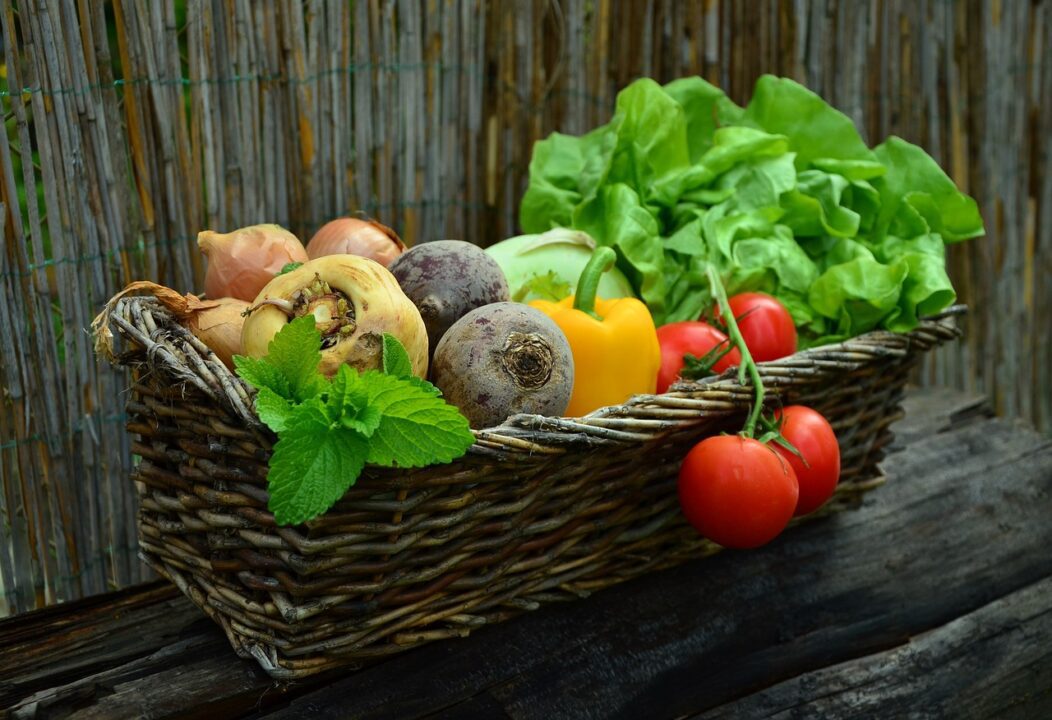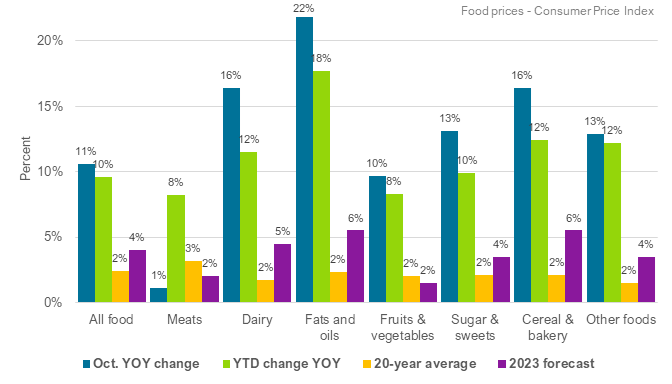
For many senior citizens living on a fixed income, covering daily expenses is often a challenge. The Medicare Grocery Benefit Program is a vital support mechanism designed to alleviate the financial stress linked to buying groceries and essential food items. This program is a significant support for eligible seniors, offering financial aid and ensuring access to nutritious food, which is fundamental for their health and well-being.
This guide provides the information you need to know a thorough overview of the Medicare Grocery Benefit Program, offering insights into its basic structure, eligibility criteria, application process, and the range of benefits it offers, including allowances for meal delivery services.
Whether you are a senior considering this program or a caregiver seeking information, this guide is a reliable resource, furnishing you with the necessary details about the Medicare Grocery Benefit Program.
Read on for a detailed explanation of the program, clear answers to potential concerns, and guidance on how to make the most of the benefits available through this program for a healthier and more secure life.
What is the Medicare Food Grocery Allowance?
The Medicare grocery allowance is a federally funded initiative that provides assistance to low-income senior citizens to purchase groceries and other essential food items. This program is available to those who are eligible for Medicare and have a low income.
It’s also worth noting that some Medicare Advantage plans might offer a flex card, which can be used for health-related expenses, including grocery delivery services.

Is there a food grocery benefit for Medicare recipients?
Yes. To be eligible for the grocery benefit for Medicare recipients, many people ask the question, “Who is eligible for medicare food allowance?” You must meet the following criteria:
- You must be enrolled in Medicare Part B
- You must have an income that is at or below 135% of the federal poverty level
- You must be a U.S. citizen or a legal resident.
Which Medicare Plan Covers Groceries?
If you’re exploring Medicare plans with grocery benefits, it’s important to understand that Original Medicare doesn’t include these perks. Instead, grocery benefits are exclusively available through certain Medicare Advantage plans, particularly for those enrolled in a Medicare Advantage Special Needs Plan. Some plans, like the Humana Healthy Foods Card program, offer allowances specifically for purchasing healthy food items.
This benefit is strategically designed for individuals under the Special Needs Plan, providing an allowance that can be a significant aid for grocery expenses. If you’re navigating through the various Medicare plans, considering this benefit might be crucial, especially if you align with the eligibility criteria for the Special Needs Plan.
For clarity and to explore the benefits available to you, engaging with your service provider is highly recommended. A discussion with them can offer insight into your eligibility for this grocery allowance, potentially unveiling a benefit that can substantially support your nutritional and dietary needs.
Eligibility Criteria
Understanding who qualifies for the Medicare Grocery Benefit Program is crucial. The program is not universally available to all individuals on Medicare; instead, it targets those enrolled in specific Medicare Advantage plans, particularly those with Special Needs Plans (SNPs).
Medicare Advantage Plans
The Grocery Benefit is not a feature of Original Medicare. It is an exclusive benefit found in certain Medicare Advantage plans. Individuals enrolled in a Medicare Advantage Special Needs Plan (SNP) are primarily the ones who may have access to this benefit, including those who might be eligible for food assistance through programs like the Humana Healthy Foods Card.
Special Needs Plans (SNPs)
SNPs are a type of Medicare Advantage Plan tailored for individuals with particular diseases or characteristics. There are two kinds of SNPs relevant to the Grocery Benefit:
- Chronic Condition Special Needs Plans (C-SNPs): Designed for people with severe or disabling chronic conditions, C-SNPs provide coordinated healthcare and benefits to members. Some C-SNPs include the Grocery Benefit for those who meet specific criteria.
Chronic Conditions
To qualify under a C-SNP, individuals must have one or more of the following chronic conditions:
- Autoimmune disorders
- Arthritis
- Cancer
- Chronic Obstructive Pulmonary Disease (COPD)
- Congestive Heart Failure (CHF)
- Coronary Artery Disease (CAD)
- Depression
- Diabetes
- End-stage liver disease
- Obesity
Income Level
While income is not a direct criterion for the Grocery Benefit, many individuals eligible for D-SNPs (and therefore potentially eligible for the Grocery Benefit) have low incomes. These individuals often qualify for both Medicare and Medicaid, making them dual-eligible and potentially able to receive additional stimulus support or food assistance.
Verification Process
Eligibility must be verified through your Medicare Advantage Plan provider. They will provide detailed information about whether your plan offers the Grocery Benefit and if you meet the eligibility criteria.
How to apply for Medicare food allowance
To apply for the Medicare grocery benefit, you can contact your local Area Agency on Aging. They will provide you with the necessary information and help you through the application process, including guidance on how to use any flex cards or grocery delivery services that might be available to you.
Application Process
Applying for the Medicare Grocery Benefit, primarily available to individuals on Special Needs Plans, involves a series of straightforward steps. Below is a systematic guide to assist eligible candidates in successfully securing this benefit.
Step 1: Check Your Plan
First things first, let’s make sure your Medicare Advantage plan actually offers this grocery benefit. You can do this by taking a peek at your plan documents or giving your plan provider a call. They’ll let you know if you’re eligible and if the plan includes any specific allowances like a flex card or grocery delivery services.
Step 2: Reach Out to Your Provider
If it turns out you qualify, that’s great news! The next thing you’ll want to do is get in touch with your plan provider again. They’ll give you the lowdown on how to apply and hand over any forms or documents you might need to fill out. This might also be the time to inquire about the Humana Healthy Foods Card if your provider offers it.
Step 3: Watch Out for Scams
Now, this part is super important. Be on the lookout for scams or any fishy offers. If someone is telling you Medicare is offering $900 for groceries, be skeptical. And remember, never share sensitive info like your Social Security or bank account number over the phone or through email, especially if you didn’t initiate the contact.
Step 4: Double-Check Everything
If you get an offer or some sort of communication, don’t just take it at face value. Do your homework and make sure it’s legit by contacting your plan provider directly using their official contact info.
Step 5: Know Your Plan
Understanding the ins and outs of your plan is crucial. Don’t get taken in by flashy ads promising a $900 Medicare grocery benefit. If it sounds too good to be true, it probably is. Always verify the details of your Medicare coverage and the specific allowances and benefits it includes.
What do you get with the Medicare grocery allowance benefit?
The Medicare grocery allowance benefit offers a range of benefits to eligible seniors, including:
- Monthly allowance for purchasing groceries and other essential food items
- Nutrition education and counseling
- Access to community resources and services
What can the Medicare grocery card buy?
The Medicare grocery card is designed to help beneficiaries purchase eligible food items at participating grocery stores. With this card, you can buy a variety of healthy foods including fresh fruits and vegetables, dairy products, proteins, bread, and cereals.
However, it’s important to know that the card has some limitations. It won’t cover the cost of vitamins, supplements, or non-food items like soap or toiletries. Also, you won’t be able to use it to buy baby foods, alcohol, desserts, soda, and similar items.
The main aim of the Medicare grocery card is to support beneficiaries in accessing healthy food options. It’s not meant to cover all your grocery expenses but to assist in ensuring you can get nutritious food that supports your health.
$900 grocery benefit for Medicare recipients
The financial assistance provided through the Medicare grocery benefit program varies based on factors such as income and household size. As of July 2023, it’s crucial to note that there is no official announcement or allocation of a $900 grocery benefit for Medicare recipients, including seniors over the age of 60.
It has come to attention that there might be scams circulating, where individuals claim to represent Medicare, offering a free debit card loaded with a $900 grocery allowance. Please be aware that these claims are fraudulent.
Authentic benefits from the Medicare grocery benefit program are exclusively available through select Medicare Advantage plans, not Original Medicare. Typically, the grocery allowance provided under these plans ranges between $100 to $200, not the alleged $900.
Before you can receive these legitimate benefits, you must meet specific eligibility requirements; these benefits are not issued automatically. The Medicare grocery benefit program continues to be a valuable resource for low-income senior citizens who require assistance in purchasing groceries and essential food items.
If you believe you meet the eligibility criteria, consider applying to receive the financial support you need. Always approach with caution and verify the legitimacy of any offer you receive related to Medicare benefits to avoid falling victim to scams.
Scam Awareness and Prevention
It’s essential to tread carefully when applying for the Medicare Grocery Benefit to avoid falling prey to scams. Here’s a friendly guide to help you stay safe and secure during the process.
Suspicious $900 Offers
If you hear about a $900 offer from Medicare for groceries, approach with caution. Such offers are usually not genuine. Scammers might use the allure of stimulus support to trick unsuspecting individuals.
Guard Your Personal Details
Handing over personal or financial details to unknown or untrusted sources is a no-no. If someone you don’t recognize asks for sensitive information, especially if they contacted you first, be wary.
Double-Check All Communications
Received an offer or message that doesn’t quite feel right? Take a pause and verify its legitimacy. Reach out to your plan provider using the contact details you know are accurate, not the ones in the questionable message.
Report Anything Odd
Encountered something that doesn’t seem right? Make sure to report any unusual activity or offers to your plan provider or the proper authorities. Reporting helps keep everyone safe.
Stay Updated
Keeping yourself informed about common scam tactics is wise. The more you know, the less likely you are to be deceived. Stay alert to the various forms of Medicare coverage scams and fraudulent food assistance offers circulating in the community.
With these precautions in mind, you can navigate the application process for the Medicare Grocery Benefit with confidence and peace of mind. Stay alert and stay safe!
